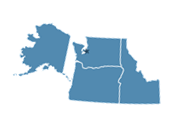
HHS and Federal Public Health News
SOAR for Native Communities

We are excited to announce the launch of the SOAR for Native Communities online module. This free training was developed in collaboration with:
Through a public health approach, the SOAR for Native Communities online module helps those serving indigenous populations to better understand human trafficking and its impact on Native communities. The training includes resources relevant to indigenous populations and supports professionals in building trauma-informed and culturally responsive interventions to human trafficking in American Indian, Alaska Native, Native Hawaiian, and Pacific Islander communities.
SOAR Online is a series of training modules that can be completed anytime, anywhere. Because individuals who have experienced trafficking or who are at risk of trafficking access a variety of services, SOAR Online includes training tailored for specific professionals on how to identify and respond to human trafficking. |
Register
Study Finds Only One-Third of States Have Publicly Available Guidelines for Levels of Maternal Care

A recent study led by HRSA staff found differences in the number of states with publicly available guidelines for levels of maternal care, and the number of states incorporating maternal care criteria.
In 2015, the Society for Maternal-Fetal Medicine and the American College of Obstetricians and Gynecologists developed a classification system for levels of maternal care. They introduced standardized criteria and uniform definitions to enable monitoring of risk-appropriate care and evaluate its impact on health outcomes. However, the current study found that only one-third of states have publically available guidelines that incorporate these criteria for levels of maternal care.
A system of risk-appropriate maternal care may have the largest potential impact on preventing pregnancy-related deaths in the United States. This study highlights the need for further dissemination and implementation of perinatal guidelines to ensure women receive care in facilities that align with their risk.
Read about HRSA’s work to address maternal care. Read the Journal of Women’s Health abstract.
|
CDC Influenza Update and Resources

Influenza Updates:
- The U.S. flu season has started and is expected to continue for weeks.
- 170.7 million doses of flu vaccine have been distributed.
CDC Recommends:
- Everyone 6 months and older get a flu vaccine each season.
- People who are at high risk of serious flu illness should take flu antiviral drugs quickly if they get sick.
Resources:
- Weekly US Influenza Surveillance Report - https://www.cdc.gov/flu/
weekly/index.htm - ILI Activity Map - https://www.cdc.gov/flu/
weekly/index.htm# ILIActivityMap - Geographic Spread of Influenza as Assessed by State and Territorial Epidemiologists - https://www.cdc.gov/flu/
weekly/#S5 - Communication Resource Center - https://www.cdc.gov/flu/
resource-center/index.htm
Funding Opportunities
- U.S. Department of Justice (DOJ)/Office on Violence Against Women (OVW): Grant. FY 2020 Grants to Enhance Culturally Specific Services for Victims of Sexual Assault, Domestic Violence, Dating Violence and Stalking Program. Supports community-based organizations, including Tribal organizations, in providing culturally relevant services to victims of domestic violence, dating violence, sexual assault and stalking. Deadline for Letter of Intent (LOI) is January 20, 2020. Learn more.
- HHS/National Institutes of Health (NIH), National Institute of Mental Health (NIMH): Research grant. Effectiveness of Implementing Sustainable Evidence-Based Mental Health Practices in Low-Resource Settings to Achieve Mental Health Equity for Traditionally Underserved Populations (R01 Clinical Trial Optional). Deadline for LOI is January 24, 2020. Learn more.
- HHS/Health Resources and Services Administration (HRSA): Grant. Maternal and Child Health (MCH) Public Health Catalyst Program. Supports the development of MCH curricula, competencies and degree offerings and the recruitment of graduate student trainees from underrepresented racial/ethnic backgrounds to complete MCH coursework. Deadline is January 8, 2020. Learn more.


































No hay comentarios:
Publicar un comentario